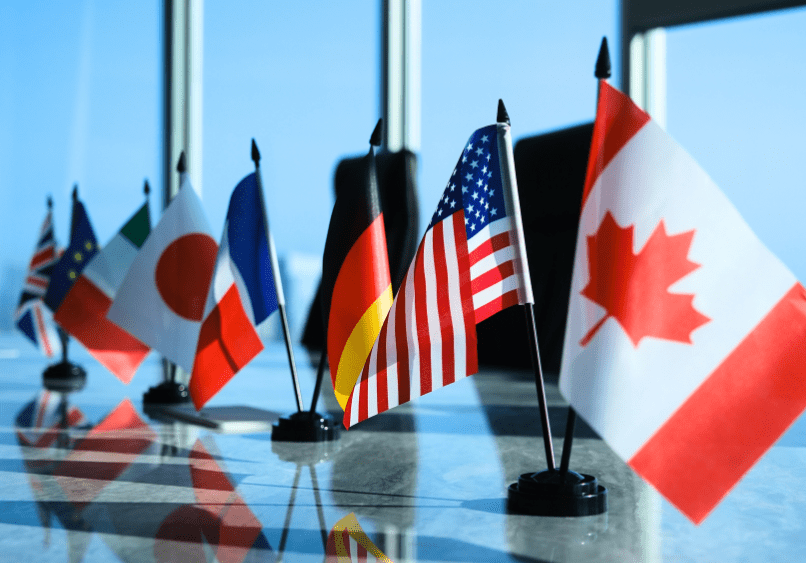Planet Depos recently compiled an International Deposition Guide (available online). In addition to providing detailed information and best practices related to international depositions, regional sections list country-specific information, as well as each country’s respective flag. This eye-catching display of a wide variety of beautiful flags got me wondering about the symbolism in the flags. As you travel for international depositions, it’s always a good thing to know a bit about your destination’s culture, and flags can clue you in to a country’s values and history. Read on for a bit about flags from frequent deposition destinations.
Japan: the flag of Japan is widely recognized, of course, a clean white banner with a large red disk (the sun) in the center. The official Japanese name is Nisshôki (sun-mark flag), though the more common name is Hinomaru (circle of the sun). Japan is commonly referred to as “the land of the rising sun,” and Japanese mythology holds that the Emperor is a descendant of the sun goddess. The flag is not without controversy, as some (even in parts of Japan) view it as a symbol of ultranationalism. In 1999, the Law Regarding the National Flag and National Anthem was passed, making the Hinomaru a national symbol.
Sweden: the design of Sweden’s flag is thought to date back to the early 16th century – a golden Scandinavian cross against a blue background. The colors are taken from the Swedish national arms, and the design was adopted from the Danish flag (after Sweden was no longer under Denmark’s control). The flag was officially adopted in 1906.
Hong Kong: the flag of Hong Kong features a white, five-petal orchid flower, each petal containing a five-pointed red star, set on a red background. The color red signifies a few things, among them zest, and the link between Hong Kong and China. The flower symbolizes harmony, and the red star in each petal represents communism and socialism. The flag was formally adopted as the Hong Kong national flag in 1997.
United Kingdom: Union Jack is probably one of the most recognizable images the world over. The flag actually combines the crosses of three countries – England and Wales, Scotland, and Ireland (though since 1921, only Northern Ireland has been part of the United Kingdom), united under one Sovereign. These three crosses are the cross of St. George, patron saint of England – a red cross on a white ground, the cross saltire of St. Andrew, patron saint of Scotland – a diagonal white cross on a blue ground, and the cross saltire of St. Patrick, patron saint of Ireland – a diagonal red cross on a white ground. The Union Jack was officially adopted as the national flag in 1801.
When planning depositions in any of these countries, or anywhere abroad, you can gain valuable insight into local culture by working with local reporters, videographers, and interpreters (if applicable). These resources not only reduce or eliminate travel expenses for your court reporting team, but can assist with logistical details ranging from printing exhibits, monitoring the connection for your mobile videoconference, to booking conference rooms on your behalf and streaming realtime text and audio to your colleagues participating remotely.
Planet Depos has been covering depositions worldwide for more than 10 years, and has reporters, videographers and interpreters living throughout the world. For information on scheduling your depositions abroad, contact Planet Depos International Scheduling at 888.433.3767 or international@planetdepos.com.
